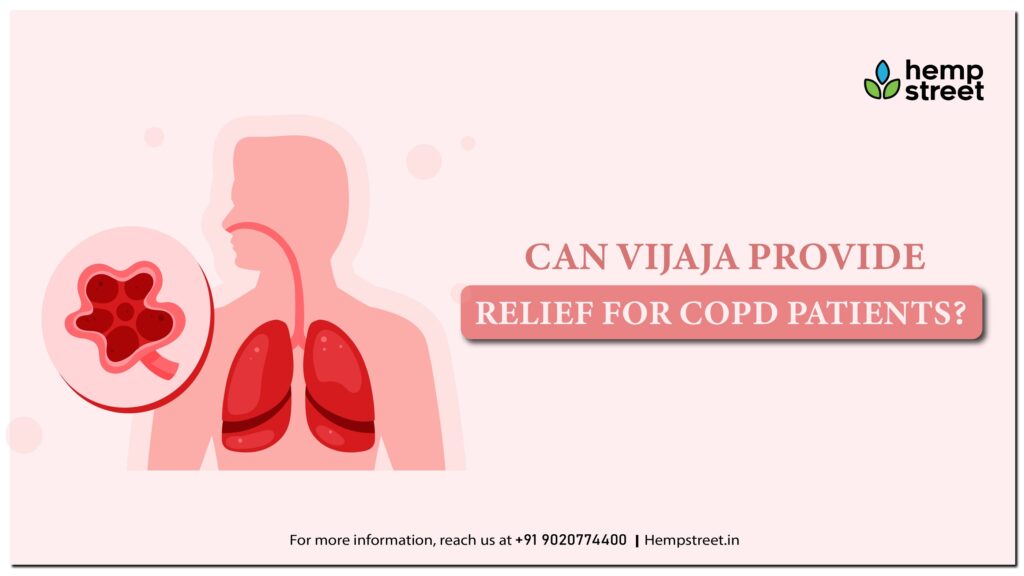Chronic Obstructive Pulmonary Disease (COPD) is the third leading cause of death around the world. In 2019, this condition caused over 3.23 million deaths globally. It is a common chronic inflammatory lung disease caused by long-term exposure to harmful and irritating gases and particles (particulate matter) in the atmosphere.
Air pollution, tobacco smoke, industrial or occupational dust, chemicals, and fumes are some of the most prominent risk factors for this condition. These factors damage the small airways in the lungs by causing them to become narrow, decreasing their elasticity, blocking them with excess mucus production, or causing inflammation or swelling in the lining.
This blocks the airflow in and out of the lungs, making it difficult to breathe, and possibly even destroys certain parts of the organ.
The Impact
COPD symptoms don’t manifest until a great deal of lung damage has occurred. And if the exposure to harmful factors continues, these symptoms usually worsen over time. Symptoms include
- Breathlessness, especially during physical activities
- Wheezing
- Chest tightness
- Chronic cough
- Excess mucus/sputum production
- Frequent respiratory infections
- Fatigue
- Depression and anxiety
As the condition progresses, the patients experience frequent episodes called exacerbations, during which the symptoms become worse and severely hinder the patients’ day-to-day lifestyle and workplace or home productivity. It can also increase the risk of other pulmonary and cardiovascular health issues.
Prominent Causes
COPD is caused by a combination of multiple factors, including
- Tobacco exposure from active or passive smoking
- Indoor air pollution (biomass fuel or coal for cooking/heating causing high smoke exposure)
- Respiratory infections (frequent or severe) in childhood preventing proper lung growth
- Poor growth in utero and prematurity
- Asthma in childhood
Besides these causes, a rare genetic condition called alpha-1 antitrypsin (AAt) deficiency can cause COPD at a very young age. AAt is a protein made in the liver and sent to the bloodstream. It is vital for protecting the lungs, and its deficiency can cause various lung diseases and respiratory issues.
Can Vijaya Alleviate COPD?
Here are some of the scientific studies conducted over the years to assess the efficacy of cannabis-based medicines in alleviating COPD and improving lung function.
A 2020 study showed that Vijaya directly affects the working of genes present in specific airway epithelial cells. These cells are present in the respiratory tract and are responsible for regulating gas exchange and protecting the tract from infections and tissue injuries. Due to this action, the hemp plant regulates the inflammatory processes associated with COPD.
As per the Lung Institute, besides alleviating inflammation, the cannabinoids in Vijaya can support and balance the immune system, reduce phlegm, relieve pain, and promote better sleep among COPD patients when consumed in the correct form. The herb also has anti-microbial properties that help prevent infections in the lungs’ airways.
In a 2020 study, it was found that the use of Vijaya significantly decreased the risk of death in the hospital by over 37% among the patients hospitalized due to COPD. They also reported a decreased mean length of in-hospital stay and lower odds of breathing issues, infections, and respiratory failure.
A study conducted in October 2022 showed that consuming cannabis-based medicines reduced the likelihood of acute symptoms by over 30% among COPD patients and prevented the conditions from worsening (reduced exacerbations).
Vijaya, Inflammation, and the Immune System
COPD symptoms usually occur due to acute inflammation of the airways, thus hindering normal breathing. Conventionally prescribed medication such as corticosteroids, antibiotics, and inhalers only relieve inflammation in the short term and have various side effects over time. These include infections, blood sugar imbalance, and weight gain.
Research shows that the hemp plant prevents the smooth muscles surrounding the lungs and airways from contracting. The study further shows that compounds in Vijaya can help suppress the excessively heightened immune response in the lungs among COPD patients. When consumed, the THC in the hemp plant activates the cannabinoid receptors that drive the production of suppressor cells from the bone marrow.
These cells exhibit strong immunosuppressant properties by preventing the growth and activation of the T-cells and other inflammatory cytokine and chemokine cells. By affecting the body’s immune response and suppressing it, Vijaya also helps alleviate lung inflammation associated with COPD.
Cyclooxygenases (COX) are certain enzymes in the body that produce inflammatory molecules like prostaglandins, which cause inflammation in the airways. Consuming cannabis-based medicines helps inhibit the function of these enzymes, decrease pulmonary inflammation, prevent airflow obstruction, and consequently improve lung function.
This shows that Vijaya is a safe and effective means for COPD patients to mitigate airway constriction and alleviate their condition.
Trailokya Vijaya Vati for COPD
Trailokya Vijaya Vati is one of Ayurveda’s most potent cannabis-based medicines. Using this, one can easily leverage Vijaya’s therapeutic properties to relieve COPD and its symptoms. This formulation combines the potential of the hemp plantwith another vital Ayurvedic herb, Vansh Lochan.
Together, they act quickly and effectively on the body to produce a wide range of physiological and psychological health benefits.
While Vijaya acts as an effective anti-inflammatory medicine to alleviate inflammation in the lung’s airways, Vansh Lochan exhibits potent anti-microbial, antioxidant, expectorant, and demulcent properties to relieve excess mucus from the respiratory tract and prevent microbial infections in the lungs.
Moreover, because of its herbal composition, Trailokya Vijaya Vati can be safely tolerated by COPD patients without them suffering from any unnecessary health side effects, unlike traditional prescription pharmaceuticals.
Reach out to Hempstreet to find out more about this natural concoction and its right dosage for your condition, and get the best consultation from Ayurvedic health experts for a personalized and holistic treatment regime.
References
https://jcannabisresearch.biomedcentral.com/articles/10.1186/s42238-019-0014-9
https://www.atsjournals.org/doi/full/10.1513/AnnalsATS.201807-463ED
https://copdnewstoday.com/social-clips/cannabis-benefit-copd-patients/
https://lunginstitute.com/can-marijuana-help-copd/
https://www.veriheal.com/conditions/chronic-obstructive-pulmonary-disease-copd/#the-ECS-and-COPD
https://www.who.int/news-room/fact-sheets/detail/chronic-obstructive-pulmonary-disease-(copd)




